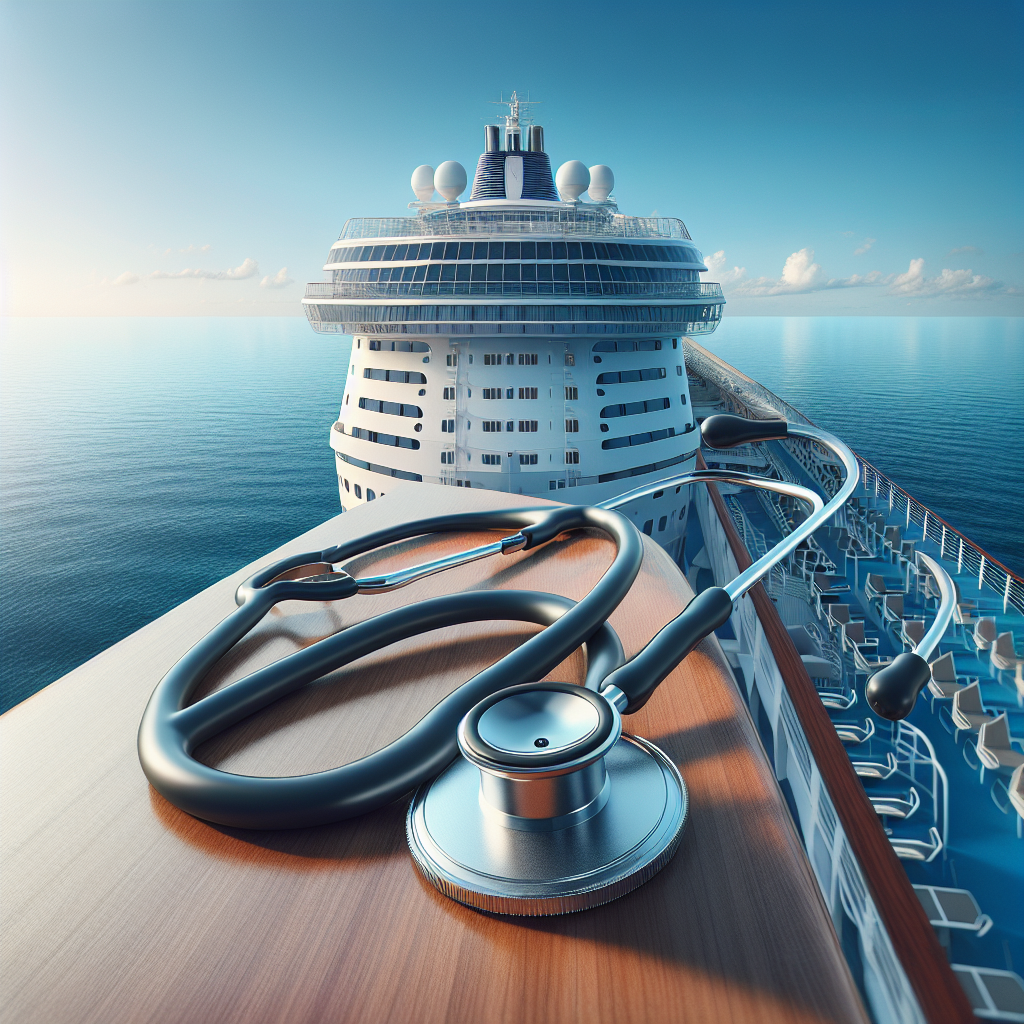A record 34.7 million people are anticipated to embark on cruise trips in 2024, according to the Cruise Lines International Association (CLIA). However, if they are not vigilant, some may end up with substantial medical bills.
It’s crucial for anyone planning a cruise to thoroughly read the fine print of their cruise line’s terms, particularly regarding medical care.
In extreme cases, individuals could face thousands of dollars in charges before being allowed to disembark, as experienced by Vincent Wasney. In December 2022, Wasney, who lacked insurance at the time, went on a cruise with his wife. After suffering multiple seizures, he was evacuated by a rescue boat for appropriate medical care on land. Upon departure, he was presented with a $2,500 bill for the care he received onboard.
Wasney traveled on a Royal Caribbean cruise, which mandates guests to clear all onboard expenses by the end of the cruise. Even insured passengers could face hefty bills in case of medical emergencies, as most cruise ships do not accept health insurance.
Here’s what you need to know about medical care on cruise ships:
**Common Health Concerns on a Cruise**
Medical staff aboard cruise ships typically handle issues similar to those seen in emergency departments and urgent care centers on land, according to Joe Scott, chair of the cruise ship medicine section of the American College of Emergency Physicians (ACEP). Frequent concerns include seasickness, sunburns, chest pain, abdominal pain, fever, injuries, and mental health issues.
The U.S. Centers for Disease Control and Prevention (CDC) warns that shipboard environments can facilitate the spread of person-to-person, foodborne, and waterborne diseases. Approximately half of all passengers seeking medical care on a cruise ship are over 65 years old.
**Capabilities of Cruise Ships**
All CLIA-member oceangoing cruises must meet medical facility guidelines set by ACEP. These guidelines require at least one qualified medical professional to be available 24/7 for medical bay visits or cabin house calls, according to Sally Andrews, CLIA vice president of communications and public affairs.
Cruise ships must also have an examination room, an intensive care room, and equipment for lab tests, vital signs monitoring, and medication administration. Larger cruise ships are typically equipped to manage emergencies for a few hours and many conditions for several days. About 95% of conditions reported to ship medical staff are managed onboard, according to the CDC.
**Why Don’t Cruise Ships Accept Health Insurance?**
Most cruise ships don’t accept health insurance due to the administrative burden of handling hundreds of different plans from around the world, each with various international coverage policies. Requiring passengers to pay all charges onboard reduces this burden, explained Scott. Cruise lines generally encourage guests to seek reimbursement from their insurance plans after they return home. Coverage can vary based on the policy.
**What to Look for in a Travel Insurance Plan**
The best protection is to purchase a travel insurance plan that covers medical expenses. Premiums can cost up to a few hundred dollars but can save travelers thousands in emergencies. Scott advises selecting plans that cover current medical conditions and the destinations on the trip, with adequate medical evacuation coverage. Air medical evacuations from remote locations can be costly.
**Preventative Actions for Cruise Travelers**
Scott emphasizes that existing medical concerns will persist during a cruise. He recommends bringing extra medication, maintaining a list of prescriptions and medical conditions, and contact information for doctors. This information can assist ship medical staff in emergencies. Additionally, passengers should wash their hands frequently, stay hydrated, and know their physical limits, especially during strenuous activities.
“Climbing the stone steps in Santorini may sound exciting, but if you don’t regularly exercise in the heat, you might want to reconsider,” Scott advised.
